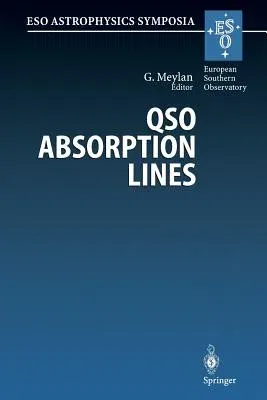Qso Absorption Lines: Proceedings of the Eso Workshop Held at Garching, Germany, 21-24 November 1994 (Softcover Reprint of the Original 1st 1995)Paperback - Softcover Reprint of the Original 1st 1995, 18 April 2014

Qty
1
Turbo
Ships in 2 - 3 days
In Stock
Free Delivery
Cash on Delivery
15 Days
Free Returns
Secure Checkout
Part of Series
Eso Astrophysics Symposia
Part of Series
Eso Astrophysics Symposia (Closed)
Print Length
471 pages
Language
English
Publisher
Springer
Date Published
18 Apr 2014
ISBN-10
3662223732
ISBN-13
9783662223734
Description
Product Details
Book Edition:
Softcover Reprint of the Original 1st 1995
Book Format:
Paperback
Country of Origin:
NL
Date Published:
18 April 2014
Dimensions:
23.39 x
15.6 x
2.57 cm
ISBN-10:
3662223732
ISBN-13:
9783662223734
Language:
English
Location:
Berlin, Heidelberg
Pages:
471
Publisher:
Weight:
694 gm

